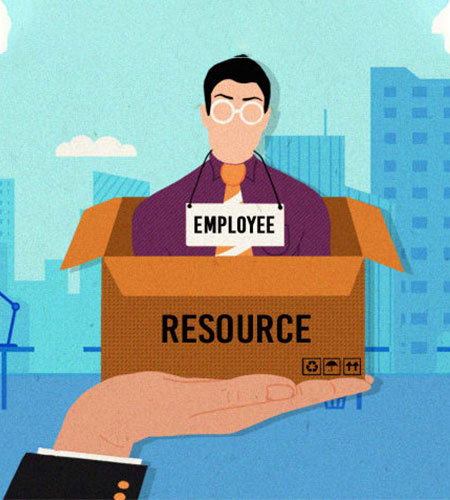Aptitude is a natural talent which can be kept in shape if regular nurturing is…

Employees are not resources
Who is a human? It is someone who has the ability to make their own decisions and bear the consequences of the same. A human is someone who has the capacity to feel empathy. The phrase “human resource” treats people as a means to an end. The Versailles Treaty said that peace ‘can only be established if it is based upon Social Justice’ and social justice requires that people are ends in themselves, not means for other people’s ends.
In a just society, human capacity expands through education, better health and sustainable prosperity. Human creativity is freed when people have a voice in important matters, security to plan their lives, and material resources to fulfil their potential. If humans are exploited like material resources, for the private gain of a few, this must diminish total social prosperity. Labour is not a commodity; humans are not a resource.
Whenever the essential tenets of ‘human resource’ theory have been put into practice most fully, the outcomes for prosperity have been the worst. In the last 40 years, developed societies have moved into a phase of lower productivity and growth, higher unemployment, and higher inequality. This all adds up to a lower rate of human development.
The above-mentioned changes have not been a part of any conscious plans, but a state of mind. It is written in textbook titles and corridor signs, a part of daily terminology. A corrosive ideology: a human is a resource.
Of course, it could be argued that language does not matter. Perhaps it is possible to use the term ‘human resource' in it’s original sense, to extol the boundless capacity of people to improve themselves and contribute to a better society. But words do matter. Words carry meaning.
A major concern about treating people as assets or resources is that it results in them being commoditized and objectified. What an individual will become depends on what kind of environment the organisation can create. Therefore, human being is not a resource; a human being is a possibility.
Related Posts
- Aptitude Needs Sharpening
Aptitude is a natural talent which can be kept in shape if regular nurturing is…
- Sabotage in Businesses
An Employee’s Moral Imperative Against Sabotage in Businesses Competition in the business-world is a good…
- Significance Of Time
‘Time’ means the progress of events, and also the way in which this progress of…
- BUSINESS: Purpose Beyond Profit
“What is good for society is also good for business. “- Peter Stordalen. The body…
- Arnab Sengupta -Rydberg | SDS2 | Tekla | Advance Steel
- © Arnab Sengupta 2021 All Rights Reserved
- arnabsg75@gmail.com +91-97487-31509








